 With the summer season now in full swing we’ve been casting our eye back to the beginning of the year. The latest statistics from Visit England’s Great Britain Tourism Survey (released in recent weeks) has given us the initial indications of how the industry performed throughout the first quarter, a season during which many holiday homeowners and agencies will be looking to grow bookings.
With the summer season now in full swing we’ve been casting our eye back to the beginning of the year. The latest statistics from Visit England’s Great Britain Tourism Survey (released in recent weeks) has given us the initial indications of how the industry performed throughout the first quarter, a season during which many holiday homeowners and agencies will be looking to grow bookings.
Here’s the overview of how the industry is looking…
Record breaking results!
Let’s start with some great news; domestic tourism in the UK appears to be on the up.
The results, which cover January – March 2016, reveal a record breaking first quarter with a 23% increase in spending from last year, in no small amount due to a 10% increase in domestic overnight holiday trips.
That works out as a total spending of £1.8 billion and 7.3 million visits. Very positive signs.
Monthly break down
So how do those increases spread out across the first three months of that quarter?
The answer is reasonably equally, with January, February and March all seeing marked year on year increases in visits and visitor spend.
During January visitors to England spent 9.2% more than last year, with February also seeing a 14% year on year hike (that’s £978 million in real terms). It doesn’t stop there either; March smashed all records with a 32.6% year on year increase in expenditure shared across the British Isles.
Regional growth for the South West and West Midlands
When breaking growth down by region the West Country and the West Midlands have been the biggest winners. More and more of us are now visiting the South West outside of the main season, as demonstrated by an 8% increase in visits during February.
Meanwhile, the West Midlands pulled in 11% more visitors than in the corresponding period last year.
Being inventive with pricing, short breaks and incentives appears to continue to be vital in attracting visitors to destinations during these winter months, and holiday homeowners have done this well in recent years.
London continues to draw international and domestic visitors
The capital continues to be a large draw for anyone visiting the country from abroad, as well as for domestic tourism. This statement was backed up by London seeing the largest increase in nights; up 16% in February, and a huge 28% in March.
Spending soaring in the East of England
The East of England saw the biggest increase in spending during February (a staggering 32% up). This growth was also mirrored during March, and even beaten with spend peaking 35% up on the previous year.
The East Midlands was another area in which visitor spend skyrocketed by 25% in February and another 24% throughout the year to date.
The rest of the year
Based on the impressive results of the first quarter, it is looking like the second quarter will continue to display an increase. At the end of 2015, £19.6 billion was spent through domestic overnight tourism in England across all trip-purposes. Will 2016 out do 2015? We’ll have to wait and see, but the signs definitely look good for holiday homeowners.
Boshers offer specialist holiday home insurance to owners across the UK. For more information on how a specialist insurer can help and support your holiday home business, please give us a call on 01237 429444.



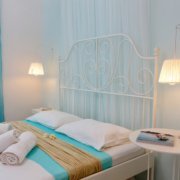
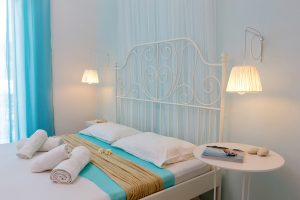

 Emergency Planning – what would you do if something went wrong? We set out some handy tips for preparing a holiday let emergency plan.
Emergency Planning – what would you do if something went wrong? We set out some handy tips for preparing a holiday let emergency plan.

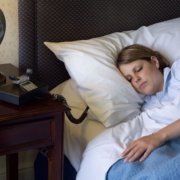
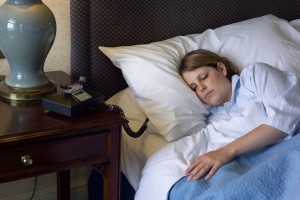 Being awoken in the middle of the night by the loud blast of a fire alarm can be both terrifying and disorientating. There may well be a multitude of things rushing through your mind; is there really a fire or is it a false alarm? Where are the children? Which is the safest route from the building?
Being awoken in the middle of the night by the loud blast of a fire alarm can be both terrifying and disorientating. There may well be a multitude of things rushing through your mind; is there really a fire or is it a false alarm? Where are the children? Which is the safest route from the building?
 When someone stays at your holiday home and has a great time you want them to return again and again, but with potentially up to a year before they enjoy their next trip, how do you drive repeat
When someone stays at your holiday home and has a great time you want them to return again and again, but with potentially up to a year before they enjoy their next trip, how do you drive repeat 
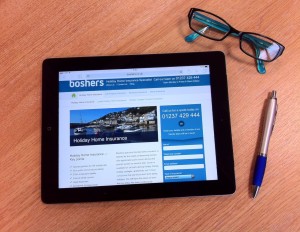 Specialist is a word that is often used but one we take really seriously and to heart. We’ve been specialising in insurance for holiday letting properties for 25 years. With that amount of experience under our belt we understand the industry.
Specialist is a word that is often used but one we take really seriously and to heart. We’ve been specialising in insurance for holiday letting properties for 25 years. With that amount of experience under our belt we understand the industry.
 With September drawing to a close one of the busiest periods of the year for holiday home owners many may expect this to be a time of reflection; to look back on one of the warmest June and July’s on record, to bask in the glory of increased bookings or to simply have a well earned rest.
With September drawing to a close one of the busiest periods of the year for holiday home owners many may expect this to be a time of reflection; to look back on one of the warmest June and July’s on record, to bask in the glory of increased bookings or to simply have a well earned rest.
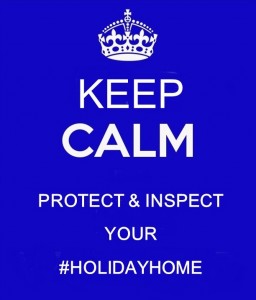 With the UK basked in what is fast becoming an Indian summer and one of the warmest July’s on records fresh in the memory it can be difficult to adjust the mind to look forward to more inclement times.
With the UK basked in what is fast becoming an Indian summer and one of the warmest July’s on records fresh in the memory it can be difficult to adjust the mind to look forward to more inclement times.